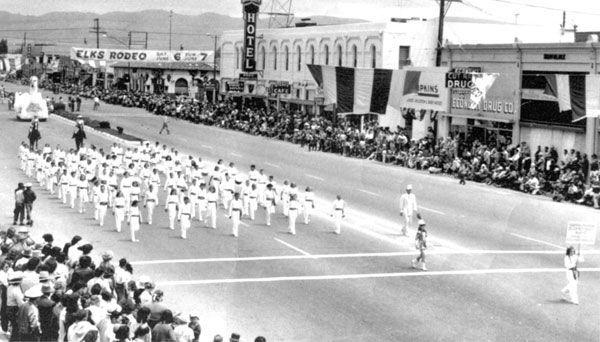|
Seems like we all get told the same platitudes regarding writing, like “Writing is rewriting,” “Show, don’t tell,” and of course, “Write what you know.” It’s that last one I was to explore for a minute. I think it’s valid, but maybe not in the reductive way some people mean it. I was doing a discussion/Q&A with a group of writing students a couple of months ago, and I got a new question. Instead of “Where do you get your ideas?” (discussed here) or “How do you deal with writer’s block?” (discussed here), someone asked, “When did you first know you wanted to be a musician?” Wow. The last-second switch from the expected “writer” to “musician” sort of threw me. I mentally reviewed my options: I joined my first band around twelve. But I got my first drum set around eleven. But I had a brief fling with electric guitar at ten. But I saw my first band around eight or nine. All of those mattered, but the actual event that started everything—maybe even me becoming a writer—happened even earlier. When I was a little kid of maybe four, I was with my family at a parade in our hometown… just your basic small-town summer parade. Somewhere amidst the baton twirlers and horseback teams and dignitaries in convertibles there was a marching drum corps. My dad had hoisted me onto his shoulders for a better look, and when they got near us those drummers started playing. Suddenly… all of them at once… at a very high volume. My God, I’d never felt anything like it! The thundering of those drums shook my chest (and in my mind’s eye, blew back my hair), but it also did something to me on the inside. Permanently. The raw power was so attractive… I immediately had the feeling of, Whatever that is… I want it! And that was that. After I’d explained this ‘big bang’ inciting incident I realized it was a teachable moment, for both me and the students. I said that yeah, following the adage of “write what you know,” in theory I should write a novel about a kid at a parade who becomes a drummer, blah blah blah… But I’d already written a book about a young drummer and I didn’t want to re-tread similar territory. But… what if I wanted to write a story about a young race driver? Maybe he started with go-karts and moved up to destruction derbies and stock cars, eventually becoming a pro NASCAR driver. I’m not an expert on motor racing, but what if I took the experience of me at the parade and authentically recast it… maybe the boy was four or five and he was with his dad at the track for the first time… maybe standing next to the outside rail… maybe his dad hoisted him for a better view… maybe when the cars roared around the first corner toward them, the raw power and the deafening noise—and the smell of gas and oil and burning tires—imprinted on the boy, and he knew that whatever the heck that was… he wanted it! And from then on, his heart was permanently betrothed to gasoline alley. I haven’t been there. But man, I’ve been there! I don’t need to know the technical specifics to get in touch with the emotions that come with those early peak experiences. And neither do you. We just have to mine those experiences, remember how they felt—viscerally, not intellectually—and do our best to forget the limiting specifics and transfer that authentic emotion to our character. We’ve all experienced moments of heightened emotion. Ecstatic, terrifying, validating, heart-rending, uplifting, soaring… We can use these… not by putting our character in the exact same situation we’ve been in, but by putting our character in a new situation while allowing him/her to experience the full emotional rollercoaster that comes with those watershed moments. Because, even if you don’t know, first-hand, all of the specifics of your character’s situation, you absolutely know how it feels to be in those moments when everything seems more. Even if you haven’t been there, you’ve been there. And you know. So… write what you know.
2 Comments
|
The Craft and Business of
|

 RSS Feed
RSS Feed